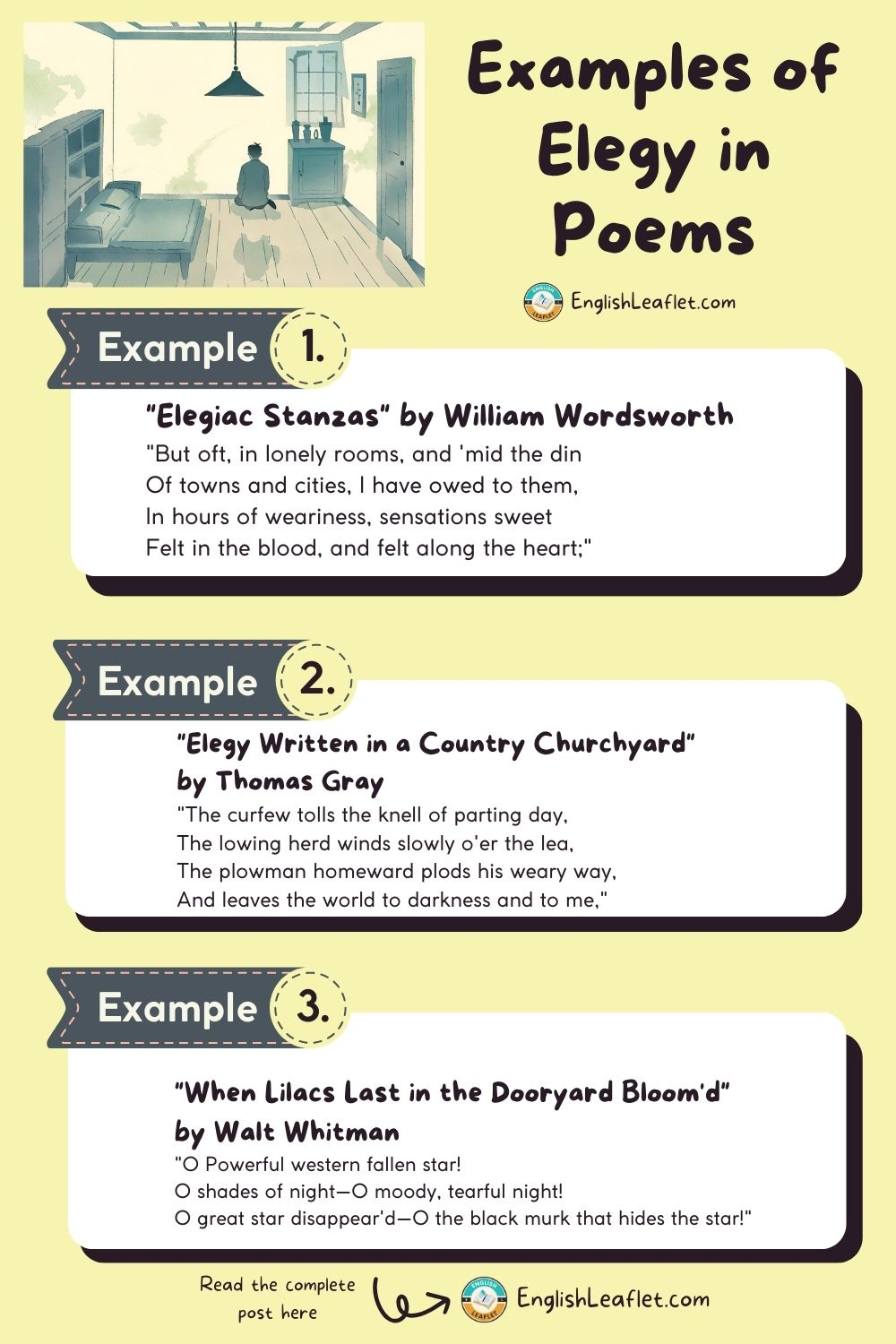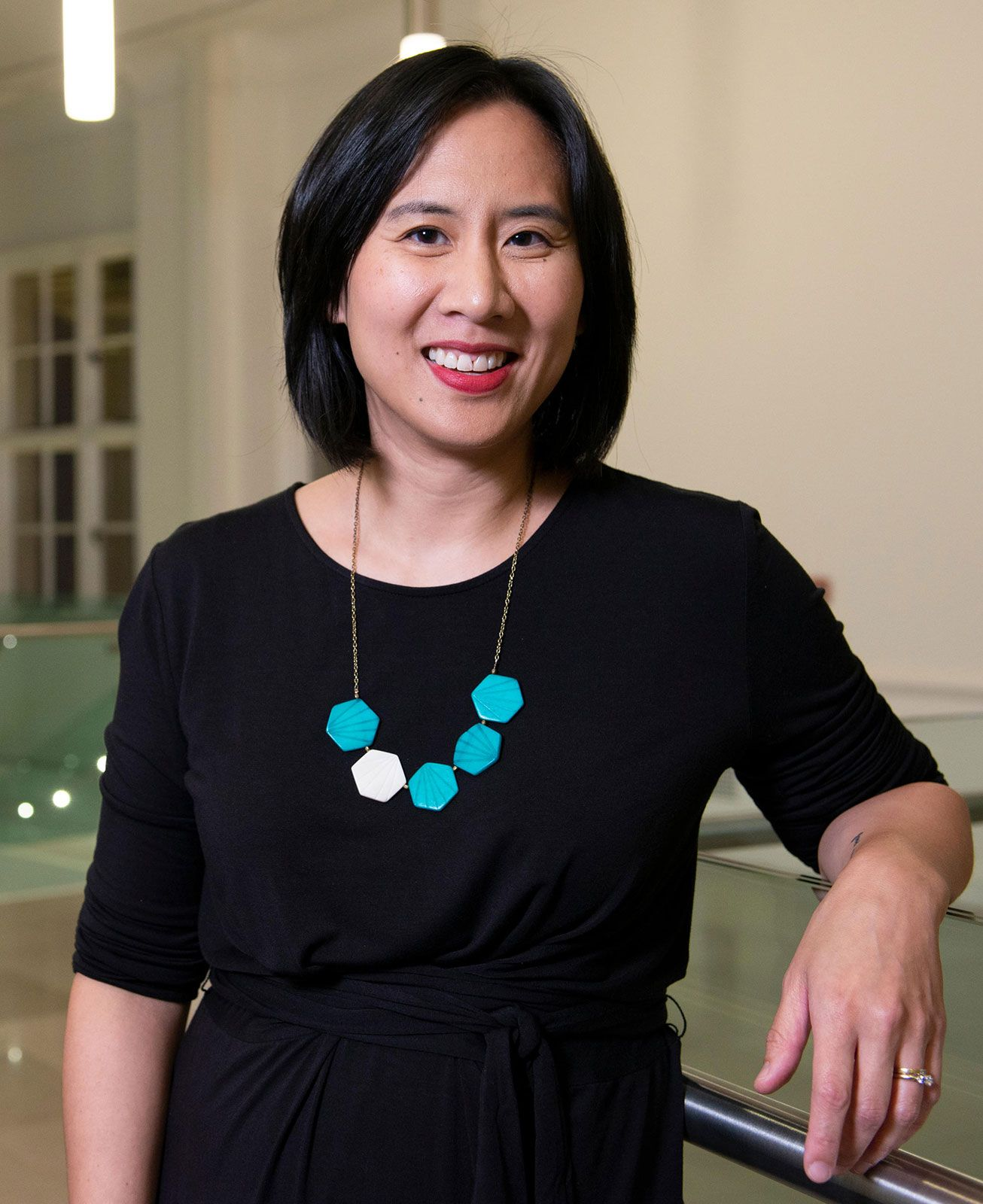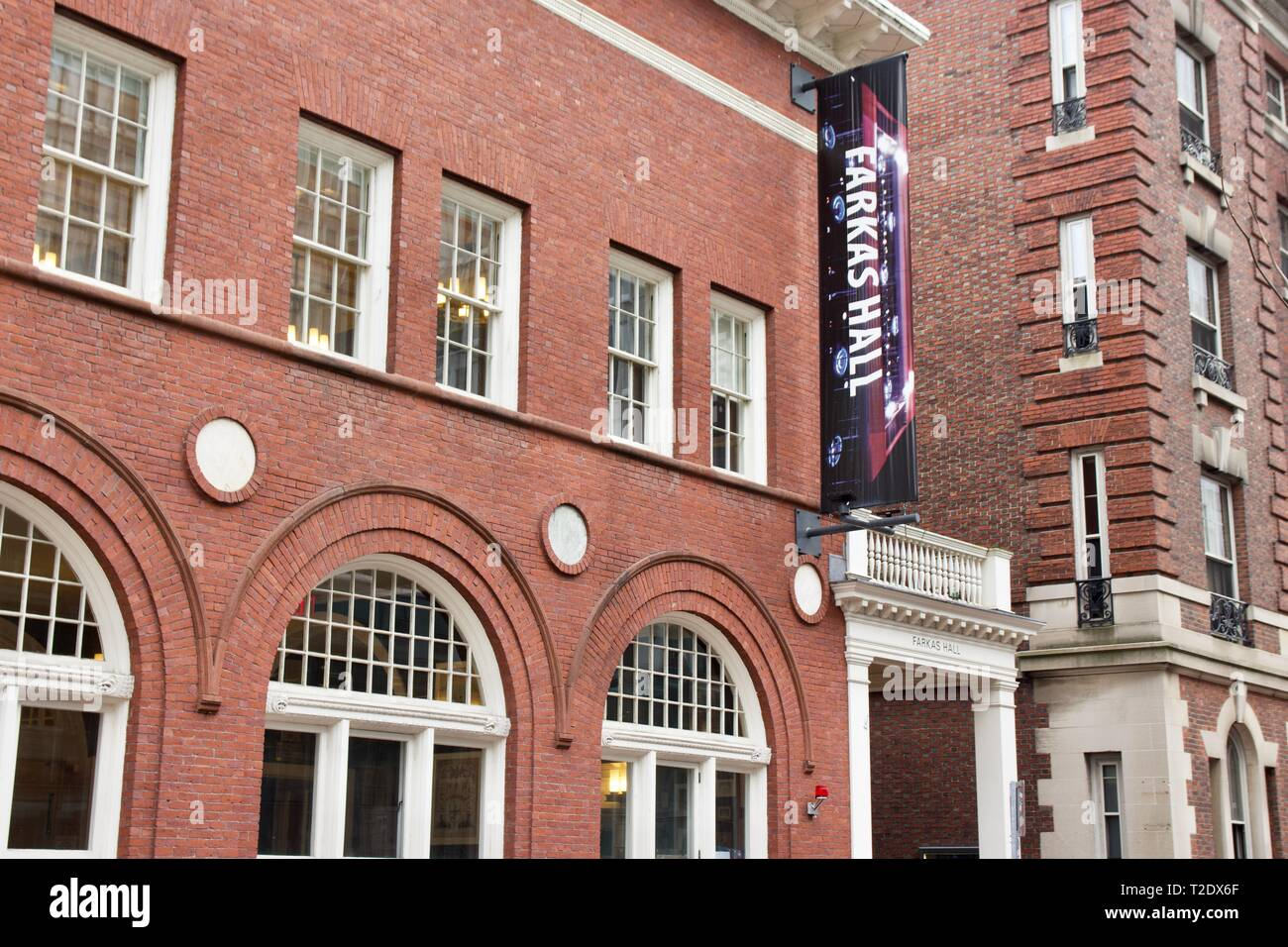The Elegy Poetry Workshop offers a unique opportunity to explore the profound dimensions of loss through the art of elegiac writing. In a cozy setting at Harvard’s Woodberry Poetry Room, participants gather to create their own elegies, embracing both personal grief and community connection in the aftermath of the pandemic. Led by renowned poets Karen Elizabeth Bishop and David Sherman, the workshop encourages attendees to express their feelings and commemorate their experiences through the lyrical lens of poetry. This initiative forms part of the broader Elegy Project, which aims to dissolve the loneliness often associated with grief by cultivating a space for collective healing via creative expression. By sharing stories and reflecting on loss, the Elegy Poetry Workshop not only enriches individual voices but also strengthens the bond of community poetry, inviting everyone to participate in the transformative power of writing elegies.
The Elegy Poetry Workshop represents a heartfelt initiative aimed at delving into the intimate themes of mourning and remembrance through poetic expression. This engaging gathering encourages attendees to write their own tributes and laments, facilitating a shared experience of healing and connection. In the spirit of community, the workshop fosters an environment where diverse voices come together to grapple with personal and collective loss, using writing as a therapeutic outlet. Led by experienced poets, the workshop intertwines the art of elegy with accessible techniques, ensuring that participants, regardless of their background in poetry, can find solace and purpose in their creativity. By celebrating the tradition of elegiac poetry, this workshop highlights the essential role of poetry workshops in navigating grief and expressing profound emotions.
The Significance of Elegy Poetry Workshops
Elegy poetry workshops serve as vital spaces for individuals seeking to explore and express their grief through writing. They provide a supportive environment where participants can engage with the tradition of elegy, a poetic form that not only honors those who have passed but also encourages personal reflection on loss and memory. In the case of the Elegy Project, the workshop at Harvard’s Woodberry Poetry Room invited individuals from various backgrounds to come together, share their experiences, and create poetry that resonates with universal emotions surrounding death and mourning.
These workshops highlight the concept of community poetry, where shared experiences of grief can foster connections among participants. For many, writing elegies becomes a means of processing their emotions and finding solace in the shared human experience of loss. Facilitators like Karen Elizabeth Bishop and David Sherman guide these creative sessions, not just as instructors but as fellow travelers on the journey of mourning, emphasizing the role of poetry as a form of communal healing.
Community Impact of the Elegy Project
The Elegy Project exemplifies how poetry can transcend individual expression and spark community engagement. By placing poem cards in public spaces, Bishop and Sherman create moments of connection that allow strangers to engage with themes of grief and remembrance. This initiative not only democratizes access to poetry but also invites individuals to reflect on their own experiences of loss. Such acts of public poetry serve as a reminder that grief is a communal experience, something that binds us together in times of sorrow.
Furthermore, the workshops have become a platform for diverse voices to be heard and validated. Participants from various walks of life—be it artists, educators, or students—come together to explore writing elegies in a safe space. The interactions among participants enrich the creative process, allowing for a tapestry of emotions to emerge. This shared journey in the Elegy Project’s workshops reveals how poetry can bridge gaps between people, offering a meaningful outlet for expressing profound emotions and fostering a sense of belonging.
Writing Elegies: A Path to Healing
Writing elegies can often be a deeply healing process for those grappling with loss. Through structured prompts and readings, participants in the Elegy Project’s workshops can find the right words to articulate their sorrow and celebrate the lives of those they have lost. As Bishop wisely notes, employing prompts can alleviate the pressure of originating the perfect line, allowing creativity to blossom more freely. This approach mirrors the healing journey—where one must be willing to explore and reflect rather than chase an ideal.
Incorporating elements of grief into poetry workshops creates an opportunity for catharsis. It nurtures a space where writers can express their emotions without fear of judgment. The act of writing elegies not only validates their feelings but also strengthens their resilience as they confront the realities of loss. It is not just about the finished poem; the entire process of writing becomes a therapeutic exercise that aids in navigating the complex emotions associated with grief.
The Role of Poetry in Expressing Grief
Poetry has long been a powerful medium for exploring and expressing grief. The Elegy Project underscores this sentiment by providing a venue for individuals to confront their emotions surrounding loss. Through crafting elegies, participants engage with their feelings in a creative and transformative manner, often discovering truths about themselves and their experiences. The workshop setting, as facilitated by seasoned poets, becomes a sanctuary for emotional exploration, allowing individuals to articulate sorrow and celebrate memories in a supportive community.
Moreover, engaging with poetry fosters an understanding that grief is a universal experience. As Mary Walker Graham eloquently stated, elegy encompasses the primal urge to console and praise. By facilitating discussions on loss and remembrance, poetry workshops create an empathetic dialogue among participants. This connection enriches their understanding of grief’s nuances, providing comfort and a sense of shared experience, ultimately embedding the workshop’s work into a broader cultural conversation about mourning and human emotion.
The Importance of Accessibility in Poetry
The Elegy Project champions accessibility in poetry, breaking down barriers that often separate the art form from the community. Workshops designed to engage individuals regardless of their prior experience with poetry enable a more inclusive environment. By offering free resources and open calls for participation, the project actively invites those who might not have considered themselves poets to explore their creative potential. This reflects a broader trend in community poetry initiatives aimed at democratizing access to artistic expression.
Creating more inclusive poetry workshops fosters a sense of belonging, reinforcing the idea that poetry is not limited to literary elites. Everyone has a story to share, particularly when it comes to experiences of loss and healing. By nurturing new voices and providing the tools needed to express their feelings, initiatives like the Elegy Project help integrate poetry into everyday life—encouraging people to view poetry not just as an art form, but as a vital outlet for emotional expression that belongs to all.
Building Community through Poetry Workshops
Community poetry workshops like the Elegy Project foster connections among participants who might otherwise feel isolated by their grief. By gathering individuals from diverse backgrounds to share their experiences and poems, the workshops illuminate how much we have in common. In an era defined by social distancing and loneliness, these creative spaces remind us of the power of collective expression. When people engage in writing together, they build a community that transcends personal sorrow, becoming a collective voice of understanding and support.
Through these workshops, participants can find solace in knowing they are not alone in their feelings. Many leave the sessions with not only a deeper understanding of elegies but also newfound friendships and support networks. This collaborative spirit is at the heart of the Elegy Project, which seeks to stitch together individuals’ stories into a rich tapestry of shared human experience and emotion. Such community-oriented approaches enrich the lives of participants, demonstrating the power of poetry to unite and heal.
The Intersection of Grief and the Arts
The intersection of grief and the arts, particularly in poetry, reveals profound insights into the human condition. The Elegy Project captures this essence, emphasizing that art can serve as a conduit for addressing themes of loss. When individuals gather to write elegies, they do not merely craft poems of sorrow; they illuminate the resilience of the human spirit. This creative engagement provides an avenue to process complex emotions, turning raw grief into something beautifully articulate and poignant.
Additionally, the incorporation of the arts into discussions of grief allows for a more holistic approach to healing. Participants learn to frame their experiences within a broader artistic context, recognizing the cathartic power of words. They discover that the act of writing is inherently tied to the rituals of remembrance, enabling a deeper exploration of how one copes with loss. Workshops that embrace this intersection foster a nurturing environment, encouraging personal growth through creativity and expression.
Exploring New Texts to Enhance Creative Writing
One of the unique aspects of the Elegy Project workshops is the emphasis on exploring new texts to inspire creative writing. By engaging with diverse poetic works, participants can draw inspiration from established poets and their takes on grief. This not only enhances their understanding of elegy as a form but also encourages them to experiment with their voices. As Sherman and Bishop noted, interaction with texts allows for unexpected connections to emerge, igniting creativity and fostering innovation in their writing.
Exploring new texts and poetic styles encourages participants to break away from traditional structures and engage in free expression. This act of exploration can lead to heartfelt writing that reflects personal narratives of loss, crafted through the style or format that resonates most with them. Workshops that provide a framework for such an exploration enable a freeing atmosphere, allowing for poetic growth and pushing attendees to reconceptualize what elegy means within their lives.
The Lasting Influence of the Elegy Project
The Elegy Project’s lasting influence extends beyond individual workshops. By cultivating a culture where grief is openly discussed through poetry, this initiative shapes how community members connect with literature and each other. The accessibility of workshops and the innovative use of public poetry not only inspire new poets but also invite the community to partake in serious discussions of loss and remembrance. Such efforts help to develop a shared understanding that can transcend individual sorrow, creating a legacy of empathy and artistic expression.
Ultimately, the Elegy Project highlights the importance of integrating poetry into the fabric of community life. By continuing to host workshops and engage with the public through poetry, the project fosters a deeper appreciation for the healing power of art. As participants create and share elegies, they are reminded that poetry is a space for connection, resilience, and above all, a celebration of life that coexists with loss.
Frequently Asked Questions
What can participants expect from the Elegy Poetry Workshop?
Participants in the Elegy Poetry Workshop can expect a supportive environment to explore writing elegies, a form of poetry that laments loss and honors the deceased. Led by experienced poets, the workshop focuses on community poetry, encouraging shared experiences through creative expression and personalized writing prompts.
How does the Elegy Poetry Workshop help individuals process grief?
The Elegy Poetry Workshop provides a space for individuals to transform personal grief into poetry, fostering connections among participants. By engaging in writing elegies, attendees learn to articulate their feelings, making grief less lonely and more manageable through shared experiences and community support.
Who are the facilitators of the Elegy Poetry Workshop?
The Elegy Poetry Workshop is facilitated by Karen Elizabeth Bishop and David Sherman, renowned poets and educators. Their expertise in poetry, particularly in elegy, helps guide participants in crafting meaningful poems that resonate with their personal experiences of loss and remembrance.
What is the purpose of the Elegy Project associated with the workshop?
The Elegy Project aims to address feelings of loneliness and grief, particularly heightened during the pandemic. By distributing poetry cards and organizing workshops, this initiative encourages people to explore their emotions and connect through the art of writing elegies and community poetry.
How can one participate in the Elegy Poetry Workshop at Harvard?
To participate in the Elegy Poetry Workshop at Harvard, interested individuals can keep an eye on announcements from the Woodberry Poetry Room or the Elegy Project. Workshops often have an open call format, welcoming poets of all levels to join and engage in the creative process.
What themes are commonly explored in the Elegy Poetry Workshop?
Common themes explored in the Elegy Poetry Workshop include loss, remembrance, and the complexities of grief. Participants reflect on their personal experiences while drawing inspiration from the rich tradition of elegy, using poetry as a medium to process and honor their emotions.
Is prior poetry writing experience required for the Elegy Poetry Workshop?
No prior poetry writing experience is required to join the Elegy Poetry Workshop. It is designed to welcome participants of all skill levels, from seasoned poets to beginners, fostering a sense of community and encouraging everyone to explore their unique voices through elegy.
What types of activities are included in the Elegy Poetry Workshop?
The Elegy Poetry Workshop includes a variety of activities such as writing prompts, reading sessions of elegies, group discussions, and peer feedback. These activities are designed to inspire creativity and build a supportive community among participants interested in writing elegies.
How does the Elegy Poetry Workshop foster community engagement?
The Elegy Poetry Workshop fosters community engagement by providing a shared space for individuals to express their emotions through poetry. By bringing together diverse participants, it cultivates connections and conversations surrounding grief, healing, and creative expression in the context of writing elegies.
Where is the Elegy Poetry Workshop held?
The Elegy Poetry Workshop is held at Harvard’s Woodberry Poetry Room, a dedicated space for poetry events and gatherings. This intimate setting enhances the workshop experience, allowing participants to delve into their writing while surrounded by literary inspiration.
| Key Points |
|---|
| The Elegy Poetry Workshop focuses on poetry inspired by grief and loneliness, particularly post-pandemic. |
| Led by Karen Elizabeth Bishop and David Sherman, the workshop aims to make grief less lonely through creative expression. |
| Participants include poets and non-poets from diverse backgrounds, fostering a sense of community and shared experience in writing. |
| The workshop promotes the use of prompts and the exploration of texts to aid creativity and ease the writing process. |
| Events surrounding the workshop, such as readings by established poets, enhance community engagement with poetry. |
| The Elegy Project distributes poetry cards in public spaces to encourage connection and conversation around themes of grief. |
Summary
The Elegy Poetry Workshop is a vital initiative designed to engage individuals in the emotionally rich tradition of elegy, allowing them to express personal grief and loss collectively. Through collaboration and shared experiences, participants learn that they are not alone in their feelings, fostering a deeper understanding of life, loss, and connection. This workshop stands out as a beacon of hope and creativity, reminding us that poetry can transcend personal boundaries and bring communities together through the power of shared emotions.



